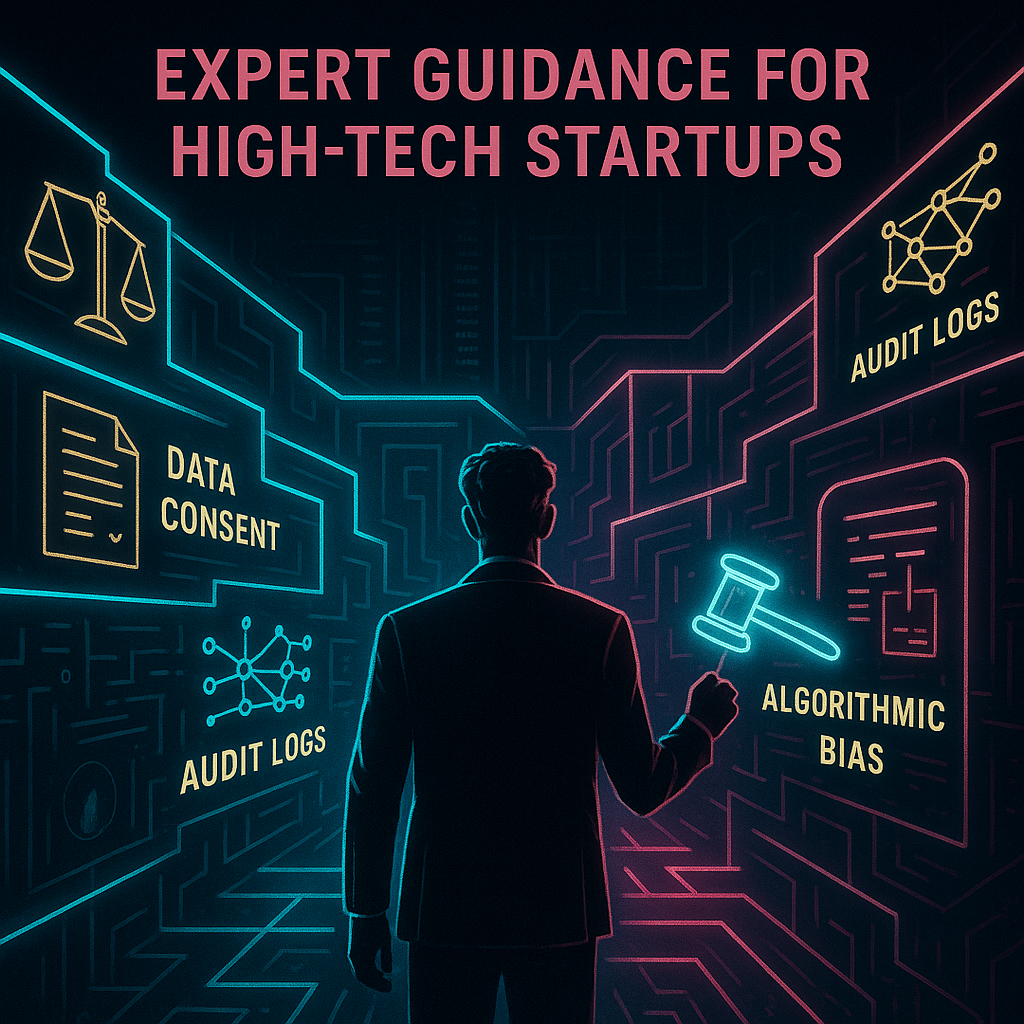Future Legal Challenges in U.S. AI Regulation: Expert Guidance for High-Tech Startups

The accelerating development and deployment of artificial intelligence (AI) technologies have sparked a swiftly changing regulatory environment across the United States. For high-tech startups integrating AI systems, understanding and preparing for these evolving legal frameworks is a critical challenge. Promise Legal’s combined mastery in both legal strategy and complex AI architectures uniquely positions it to guide startups through this landscape, ensuring compliance, risk management, and strategic advantage.
Technical Overview: AI Systems and Regulatory Implications
High-tech startups harness a variety of AI components, each carrying distinct regulatory considerations:
- Machine Learning Models: From supervised to reinforcement learning, startups leverage algorithms that ingest data, learn patterns, and make predictions. These models depend on large datasets—raising data privacy and provenance questions under laws like the California Consumer Privacy Act (CCPA).
- Data Processing Architectures: Modern AI stacks often include distributed data lakes, feature stores, and real-time streaming pipelines. Each layer must be secured and documented to comply with regulations on data retention, access controls, and breach notifications.
- AI-Driven Decision Frameworks: Whether automating underwriting decisions or recommending medical diagnostics, AI decision engines require transparency. Regulators seek explainability: why did the model reach a certain conclusion? Startups must instrument models with audit logs and explanation tools.
Integrating these technologies into a startup’s product suite introduces technical complexities that directly influence legal risk. A misconfigured access control on a data pipeline or an opaque model without proper interpretability can trigger compliance failures and liability exposure.
Emerging Legal Challenges in U.S. AI Regulation
The U.S. AI regulatory landscape remains a mosaic of federal guidance, state statutes, and agency enforcement:
- Fragmented Federal and State Rules: While there is no singular federal AI law, agencies such as the Federal Trade Commission (FTC) issue guidelines on unfair or deceptive practices. Meanwhile, California’s CPRA and Washington’s AI-specific bills add state-level requirements. For more on state variations, see our guide to patchwork state AI laws.
- Data Privacy and Consent: Startups processing personal data must navigate CCPA/CPRA, HIPAA (for health data), and sector-specific rules. Failure to obtain proper consent or to honor opt-out rights can result in significant fines.
- Algorithmic Transparency and Bias Mitigation: The proposed Algorithmic Accountability Act would require high-risk systems to undergo impact assessments. Even without enacted federal law, state attorneys general are invoking anti-discrimination and consumer-protection statutes to challenge biased AI outcomes.
- Liability for Automated Outcomes: Questions around who is responsible when an AI system causes harm—developer, deployer, or end user—remain unsettled. Startups must layer robust contractual protections and insurance strategies.
Regulatory uncertainty can stall product roadmaps, complicate fundraising, and undermine partnerships. Engaging legal expertise early is essential for aligning development cycles with compliance milestones.
The Importance of Dual Legal and Technical Expertise
Common legal counsel excels at drafting contracts and interpreting statutes—but AI’s technical nuances demand a second skill set:
- Understanding Model Behavior: A lawyer who grasps how neural networks learn and adapt can better identify risk points—such as drift or adversarial attacks—that carry compliance implications.
- Translating Technical Complexity: Bridging the gap between engineers and regulators requires fluency in both code and case law. Without this, compliance strategies can become abstract checklists rather than integrated safeguards.
- Effective Risk Evaluation: Technical insight informs precise risk assessments—distinguishing low-risk recommendation engines from high-risk autonomous decision systems.
Promise Legal stands out by pairing licensed attorneys with seasoned AI practitioners. This dual expertise avoids pitfalls like overbroad general counsel opinions or narrow technical fixes that fail legal muster.
Promise Legal’s Distinct Advantage in Guiding High-Tech Startups
Strategic Solutions for Navigating the Future AI Legal Landscape
To stay ahead of evolving rules, consider these proactive measures:
- Adaptive Legal Frameworks: Adopt modular compliance frameworks that can be updated as new regulations emerge. Use versioned documentation, automated policy checks, and continuous monitoring.
- Ethical AI Governance: Establish an AI ethics board with internal stakeholders and external advisors. Document governance processes, risk assessments, and mitigation plans to demonstrate due diligence.
- Transparent Documentation Practices: Maintain end-to-end logs of data lineage, model training epochs, hyperparameter changes, and deployment decisions. This archive supports auditability and regulatory inquiries.
- Collaborative Regulatory Engagement: Participate in working groups, public comment processes, and pilot programs. Early engagement helps shape pragmatic rules and builds relationships with regulators.
Partnering with Promise Legal empowers startups to convert legal challenges into strategic assets—reducing time-to-market, strengthening investor confidence, and building customer trust.
Conclusion
The future of AI regulation in the United States promises intricate challenges for startups at the intersection of technology and law. Navigating this fast-changing landscape requires not only legal acumen but also a profound understanding of AI systems. Promise Legal’s dual expertise equips startups to anticipate and manage these challenges effectively, transforming regulatory complexity into strategic opportunity. Startups are encouraged to engage with Promise Legal’s specialized counsel to confidently advance innovation while ensuring compliance and protecting their interests.

